Overview of the Yakult Central Institute
The Yakult Central Institute's guiding principle is
"the development of products that utilize beneficial microorganisms
and have biological regulatory functions, based on the concept of preventive medicine."
These efforts are pursued with the aim of realizing
the Yakult Group's corporate philosophy, as expressed by the following statement:
"We contribute to the health and happiness of people around the world
through pursuit of excellence in life science in general
and our research and experience in microorganisms in particular.
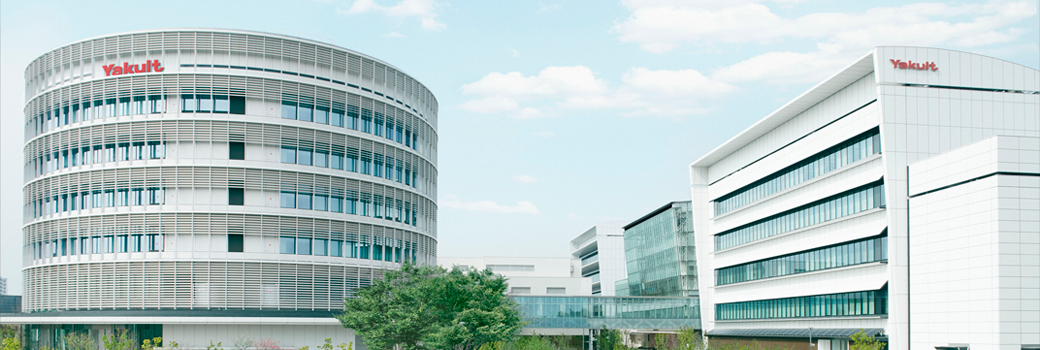
Yakult Central Institute
- Established :
- April 1955 (as the Shirota Institute)
- Location :
- 5-11 Izumi, Kunitachi-shi, Tokyo
Main research focus and fields :
Research into material development and applications for food, cosmetic, and healthcare products that are useful in maintaining, recovering, and promoting people's health.
We also specialize in the supporting fields of microbiology, nutrition, physiology, immunology, biochemistry, biotechnology, fermentation engineering, pharmacology, analytical chemistry, epidemiology, and information science.
Yakult's DNA: Minoru Shirota and Shirota-ism
In 1930, Dr. Minoru Shirota successfully cultured a fortified strain of lactic acid bacteria that is beneficial to human health, doing so at the Department of Microbiology, Faculty of Medicine, Kyoto Imperial University.
At the time when Dr. Shirota began studying the use of beneficial lactic acid bacteria for preventive medicine, therapeutic medicine was flourishing, and microbiological research in medical fields was in its early days. The fortified strain of lactic acid bacteria was successfully cultured just 23 years after the Nobel Prize winning Russian scholar, Ilya Mechnikov, published his theory on yogurt's relationship to longevity. Dr. Shirota's research and achievements were pioneering in the field of preventive medicine.
Dr. Shirota set the following concepts as the basis for his research: preventive medicine; a healthy intestinal tract leads to a long life; and a price that anyone can afford. These concepts live on in the Central Institute's research activities as Shirota-ism.
"Probiotics" is an increasingly well-known term derived from the term "probiosis," which refers to the mutually beneficial effect that two organisms have on each other. Probiotics are consistent with Shirota-ism, as they involve using beneficial bacteria to suppress the growth of harmful bacteria to keep the intestine healthy and prevent disease.
As a state-of-the-art research institute working in the field of probiotics, the Yakult Central Institute will continue to pursue excellence in life science in order to contribute to people's health by further advancing and developing research in this field.
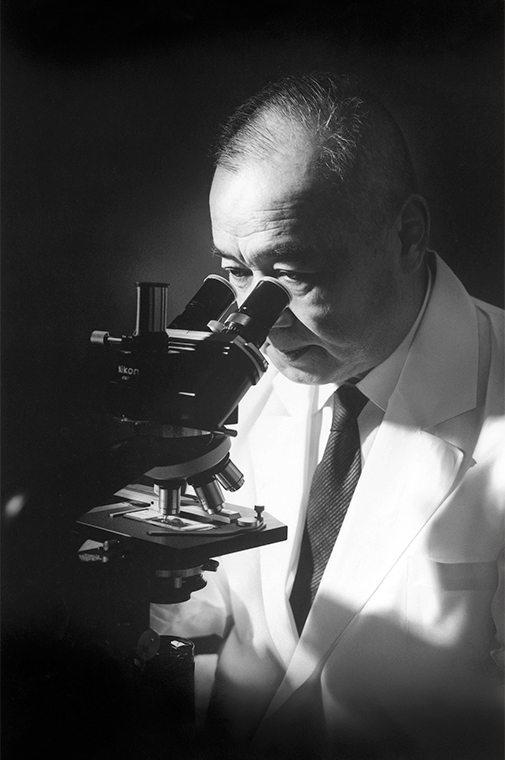
History of the Institute
1930
- Dr. Minoru Shirota succeeded in strengthening and culturing a strain of lactic acid bacteria (
L. paracasei strain Shirota*), that is beneficial to people's health.
1935
- The Yakult Research Laboratory was established in Fukuoka as the base of production and marketing for Yakult.
The name was changed to The Shirota Institute for Research on Protective Bacteria the same year and Yakult was formally founded.
1938
- Yakult was registered as a trademark.
1955
- Yakult Honsha Co., Ltd was established.
- The Shirota Institute was established in Kyoto.
1967
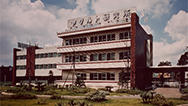
- The Research Institute was relocated to Kunitachi City, Tokyo (Later became the Yakult Central Institute).
1976
- The Analysis Center at the Institute was opened.
1985
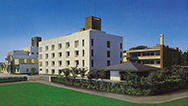
- A new research wing and the Safety Testing Research Building were added.
1992
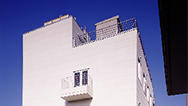
- The Intestinal Microflora Research Wing and the Library and Welfare Building were added.
2005
- The Yakult Honsha European Research Center for Microbiology VOF was established in Belgium.
2006
2010
- The first phase of construction of the new Central Institute (Food Research Building and Energy Supply Building were newly built) was carried out.
2012
2015
- The second phase of construction of the new Central Institute (Research Administration Building, Pharmaceutical and Cosmetic Research Building, Quality and Technical Development Building, and Basic Research Building were newly built) was carried out.
2016
- Construction of the new Central Institute was completed.
*L. paracasei strain Shirota is previously known as L. casei strain Shirota.




